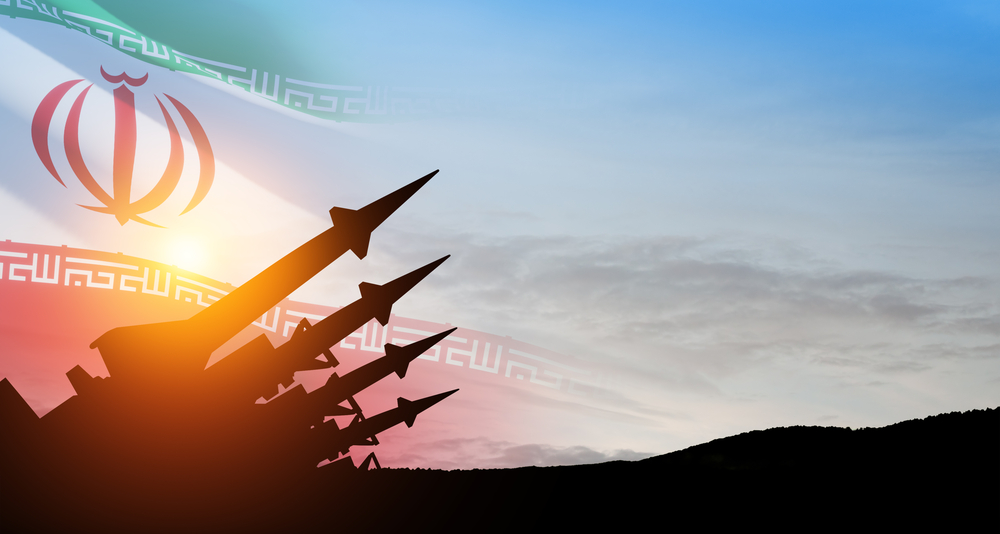In both Ukraine and Gaza, the Joe Biden administration has adopted the dangerous doctrine of war management in which, while not stopping a war diplomatically, it attempts to contain it and prevent it from becoming a wider war into which the United States might get drawn.
This difficult to calibrate policy is being threatened in both theaters.
In the Middle East, two Israeli actions have escalated the calibrated strikes between Israel and Iran, up to the threshold that Iran could absorb without feeling the necessity to respond.
One was an airstrike in southern Lebanon that killed Ali Ahmad Hassin, an important Hezbollah commander. The more significant and volatile one was the April 1 attack on an Iranian embassy compound in Damascus that killed seven Iranian officers, including General Mohammad Reza Zahedi, the top Iranian Quds Force commander in Lebanon and Syria.
Zahedi is the most senior Iranian commander to be killed since war broke out on October 7. But what made this strike escalatory and dangerous is that it targeted an embassy compound under Iranian sovereignty. “When they attack our consulate,” Ayatollah Ali Khamenei said in a speech on April 10, “it is as if they have attacked our soil.” Khamenei called the decision to escalate to such an attack a “mistake” that “must be punished.”
A direct response by Iran against Israel could risk the nightmare scenario the United States has sought to avoid through its policy of managing wars. In that scenario, Iran retaliates in kind against Israel and Israel responds, drawing Iran and Hezbollah into the war in a manner that pulls in the Houthis as well as militias in Iraq and Syria. A Houthi source told Responsible Statecraft that “In case a full-scale war was to erupt between Hezbollah and Israel, Yemen and its leadership will stand with the party [Hezbollah] militarily, politically and economically” in a way that could even include “sending foot soldiers.” Such a force aligned against Israel could risk drawing the United States into the war.
In a speech on April 5, Hezbollah Secretary General Sayyed Hassan Nasrallah called the attack on Iran’s Damascus embassy “a turning point” and said that it is “certain that the Iranian response to the [bombing] of the Iranian consulate is coming without a doubt.”
He said, perhaps clearly for the first time, that Hezbollah could intervene in the event of a full-scale Israel-Iran war. “Everyone must prepare themselves, arrange their matters and be careful,” he said, “when the Iranian side responds to the targeting of the Iranian consulate and to the Zionist enemy’s possible response to the Iranian response.”
Nasrallah said that an Iranian response is inevitable and seemed to caution against the size of the Israeli counter-response, saying, not only that “everyone must prepare themselves,” but reminding that Hezbollah has “not used the main weapons nor the main forces and we have not called in the reserves.”
Nasrallah may have been leveraging a fuller Hezbollah entrance into the war to caution Israel and the United States against an even more escalatory Israeli counter-response to the response Iran feels it must deliver. Iran may have gone one step further, leveraging its entrance into the war in an attempt to stop the war altogether.
As Trita Parsi, Executive Vice President of the Quincy Institute first reported, an Arab diplomatic source told Jadeh Iran that Iran will respond to the Israeli attack on its embassy with a direct attack on Israel unless the United States orchestrates a ceasefire in Gaza. According to reporting in Jadeh Iran, “Iran has vowed to respond to the assassination of Zahedi.” However, in an “exchange of messages between Tehran and Washington” whose aim is “to contain escalation,” an Iranian proposal “stipulated a ceasefire in Gaza as a price” for not striking Israel in retaliation.
Though a causal line cannot be drawn, it is interesting that, in an interview recorded on April 3, President Joe Biden said, “I think what [Netanyahu’s] doing is a mistake. I don’t agree with his approach,” and then said, “So what I’m calling for is the Israelis to just call for a ceasefire, allow for the next six, eight weeks, a total access to all food and medicine going into the country.”
It is also interesting that the United States is participating in the latest round of ceasefire negotiations in Cairo. In an April 8 press conference, National Security Communications Advisor John Kirby said that CIA Director Bill Burns was in Cairo for the talks. He said that the Biden administration “is doing everything possible to broker a deal that secures the release of all the hostages and leads to an immediate ceasefire. And there’s simply no higher priority.”
CNN went further, reporting that Burns wasn’t just present or participating, but that he “presented a new proposal to try to bridge the gaps in ongoing negotiations to broker a deal to bring about a ceasefire.”
Hezbollah may be responding to the killing of one of their commanders by leveraging the threat of its entering the war to prevent the war from entering an uncontrolled series of escalations. Iran may be responding to the airstrike on its embassy that killed a general by leveraging its entering the war to stop the war altogether. How big a factor Iran is, and how powerful its leverage, may help determine what comes next, how big the Israeli counter-response to Iran’s promised response is and even, perhaps, the prospects of a future ceasefire.








